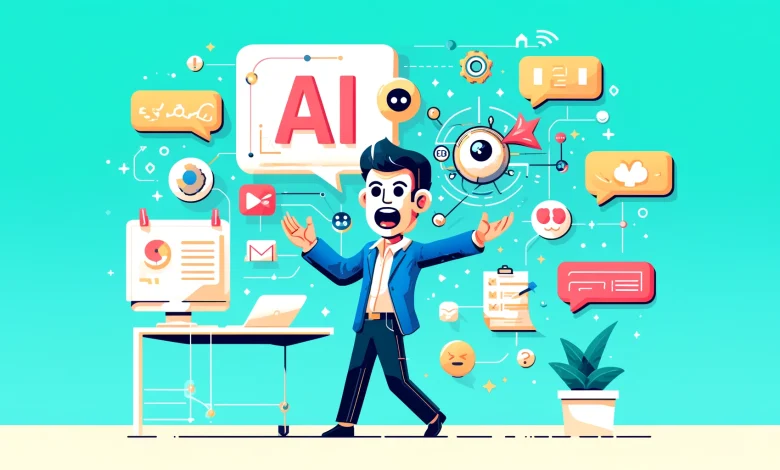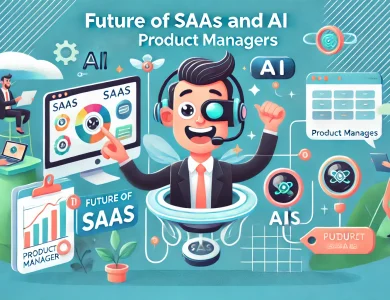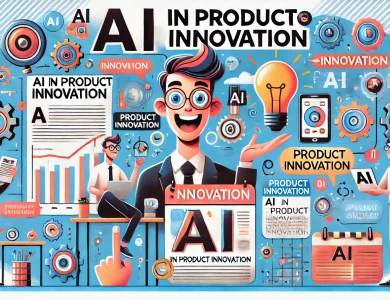The Impact of AI on the Future Roles of Product Managers

Artificial Intelligence (AI) is reshaping industries at an unprecedented pace, and product management is no exception.
From enhancing decision-making processes to enabling more personalized user experiences, AI is becoming a vital tool for modern product managers.
This article explores how AI is influencing the future roles of product managers and offers actionable insights for staying relevant in an AI-driven landscape.
Understanding the Role of AI in Product Management
AI is transforming product management by automating tasks, offering real-time insights, and enhancing decision-making capabilities. From ideation to product launch and beyond, AI streamlines processes, allowing product managers to focus on strategic decisions rather than manual, repetitive tasks. AI tools provide the ability to analyze market trends, optimize user experiences, and forecast product success with greater accuracy.
The integration of AI into these processes results in higher operational efficiency and competitive advantage.
How AI is Shaping Product Manager Responsibilities
Traditionally, product managers have been responsible for tasks like market research, feature prioritization, and customer feedback analysis. AI is changing this dynamic by enabling more data-driven, automated processes.
For example, AI-powered tools now automate feature prioritization by analyzing customer behavior and competitive landscapes, making product managers more efficient and freeing them to focus on strategy and innovation.
As product managers transition into more AI-centric roles, their responsibilities will increasingly involve managing AI integrations and ensuring these technologies deliver on business goals.
AI as a Tool for Data-Driven Decision-Making
AI’s ability to analyze large datasets in real-time is revolutionizing decision-making in product management. With AI tools like customer insight platforms, product managers can gather and interpret data to make informed decisions.
For instance, AI can analyze user behavior, competitor performance, and market trends, allowing product managers to create data-backed strategies that align with business goals.
Example: Amazon’s use of AI-driven algorithms for product recommendation has led to increased user engagement and retention, which directly aligns with their business objective of optimizing the user experience and maximizing revenue.
AI in Product Development Lifecycle
AI plays a role in every stage of the product development lifecycle, from ideation to post-launch optimization. During the ideation phase, AI helps generate product ideas based on market gaps and user needs. In the prototyping stage, AI can automate testing, speeding up iterations. Post-launch, AI continuously monitors product performance, providing real-time insights that help improve and optimize the product.
Real-World Example: Companies like Tesla use AI for continuous software updates and autonomous driving features, helping improve product functionality and safety.
The Evolving Skillset of Product Managers in an AI-Driven World
As AI becomes more embedded in product management, product managers must develop new skills to stay relevant. Understanding machine learning, data science, and AI ethics is increasingly important. Product managers must also learn to work closely with data scientists and AI teams to harness the power of AI for product development.
Acquiring skills in AI-powered tools, analytics, and automation will be key to thriving in the AI-driven future of product management. This evolving skillset will also demand an understanding of AI ethics, ensuring that bias, transparency, and fairness are prioritized.
AI for Market Research and Customer Segmentation
AI enhances market research by analyzing massive amounts of behavioral data and generating actionable insights. Product managers can use AI tools to identify customer segments, understand pain points, and predict user needs. AI tools such as market research platforms can analyze consumer trends, helping product managers craft tailored products that meet specific market demands.
Practical Example: Spotify’s AI-driven recommendation engine segments users based on listening behavior, creating a personalized experience that boosts retention.
AI and Predictive Analytics for Product Roadmapping
AI-powered predictive analytics tools are invaluable for creating product roadmaps. By analyzing historical data, user behavior, and market trends, AI can forecast product success and customer needs.
Product managers can use these insights to create data-driven, long-term roadmaps that adapt to market changes and user expectations. Predictive models allow for agile decision-making, minimizing risks associated with product launch failures.
Automating Routine Tasks with AI
AI is automating routine product management tasks such as scheduling, reporting, and feature prioritization.
For example, AI can analyze customer feedback and automatically generate reports on product performance, freeing up product managers to focus on high-value tasks like strategy and innovation. AI-driven automation tools like Jira and Trello are already being adopted by product teams to optimize project management workflows.
AI-Powered User Feedback and Sentiment Analysis
AI is transforming how product managers gather and interpret user feedback. Natural Language Processing (NLP) and sentiment analysis tools allow product managers to analyze reviews, surveys, and customer support tickets in real-time.
These insights can then be used to inform feature development, improve customer satisfaction, and enhance user experiences. Practical Example: Netflix uses NLP to analyze user reviews and feedback, tailoring recommendations and improving user engagement.
AI and Cross-Functional Collaboration
AI is facilitating better communication and collaboration between product managers and other teams like engineering, marketing, and sales. AI tools enable seamless information sharing, automate updates, and provide real-time insights into progress.
Product managers can use AI-driven platforms to streamline communication and ensure all teams are aligned with the product vision.
Personalizing User Experiences with AI
AI enables product managers to deliver personalized user experiences at scale. By analyzing user behavior and preferences, AI can recommend personalized features or content that enhances the user experience.
This level of personalization leads to higher user satisfaction and increased customer retention. AI-powered personalization engines are already helping product managers deliver tailored experiences to their users.
AI as a Strategic Partner in Product Vision and Innovation
AI is more than just a tool for automation—it can also act as a strategic partner in shaping product vision and driving innovation. AI can analyze market opportunities, predict future trends, and even generate ideas for new products.
By incorporating AI into the product visioning process, product managers can stay ahead of the competition and create innovative products. Case in Point: Google uses AI-driven insights to innovate within its cloud computing services, continuously refining its product offerings based on market data.
AI-Driven Competitive Analysis
AI tools are revolutionizing competitive analysis by providing deep insights into competitors’ products, market positioning, and customer feedback. Product managers can use AI-driven competitive analysis to identify gaps in the market and develop features that give their products a competitive edge.
AI for Predictive User Behavior and Trend Forecasting
AI can predict user behavior and market trends with high accuracy. By analyzing historical data, AI-powered predictive analytics tools can forecast what features users will want next, allowing product managers to stay ahead of customer demands. This predictive capability can also guide long-term product planning and iterative improvements.




